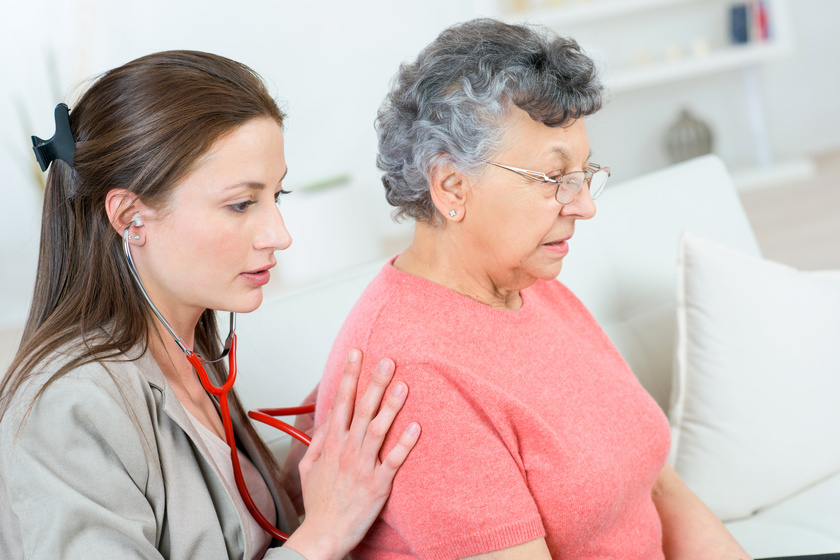It’s usual for elderly people to wheeze. When breathing, wheezers frequently generate a whistling sound. Wheezing is a symptom of breathing problems and is typically brought on by a narrowed airway or an abundance of mucus.
You or your loved one’s quality of life might be compromised by severe wheezing, which is frequently accompanied by coughing. To relax and enjoy retirement life, every older adult needs to be able to breathe easily.
For you or your elderly parent to receive the best care, identifying the precise reason or causes of wheezing is crucial. Consult a doctor right away if you notice that the wheezing is growing worse or is experienced with other symptoms like chest pain.
How Serious is Wheezing?
Wheezing can be quite harmful since it affects the airway. We must be able to breathe easily to survive. Furthermore, anything that restricts or clogs the airway can be uncomfortable and unsettling for the individual.
The ability of elderly adults to perform more physically demanding activities, such as ascending stairs, may be hampered by wheezing. As a result, they might be unable to participate in group activities like singing or excursions anymore. Wheezing, in other words, can lower one’s quality of life.
Elderly wheezing may also require medication, which could have undesirable side effects. Therefore, careful patient management and monitoring are crucial.
Causes of Wheezing
Elderly people’s wheezing may be brought on by several illnesses. Because of this, a doctor’s diagnosis is crucial.
For instance, coughing and wheezing are typical signs of asthma and other conditions that affect your lungs’ smaller airways (bronchioles). You might experience dyspnea or tightness in your chest.
Wheezing and coughing can also be brought on by allergies, including hay fever. Asthma risk may be higher in allergy sufferers.
Wheezing can also be brought on by bronchitis, airway inflammation, and emphysema, which results from damage to the smaller airways and air sacs. These two conditions tend to happen in tandem as well.
The most typical cause of wheezing in elderly people is bronchial infection. Lung cancer and several rare lung conditions are less common causes of wheezing.
How to Treat Wheezing
The appropriate care to treat your loved one’s wheezing will be most effectively suggested to you by your doctor.
Although most treatments have side effects, treatment with corticosteroids, bronchodilators, or anti-anxiety medications may be necessary. To start on these, you’ll require specialized care.
Prevention is Key
Elderly wheezing can be avoided in part by lifestyle changes. It will probably be more advantageous to reside in an area where your elderly parent can breathe clean air and keep away from chemical odors or traffic. Smoking should also be avoided because it can significantly worsen wheezing in persons of all ages.
Our retirement community offers the highest quality care with trained and dedicated team members on board who are experienced in handling residents with wheezing conditions. What’s more, is that you can count on the Dimensions Health & Fitness program to keep your elderly parent active and healthy through a range of fun physical activities!







